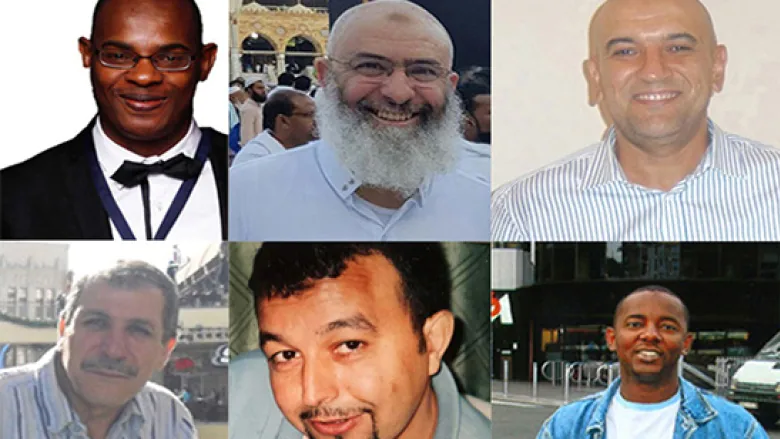On this tragic day six years ago (January 29, 2017), six Muslims were mercilessly murdered when a gunman fired upon worshipers at the Islamic Cultural Centre of Quebec City. The attack left another nineteen injured. This Islamophobic attack was widely condemned as a terrorist act and a hate crime against the Muslim community.
The fallout from this tragedy left six widows and seventeen orphans forever impacted by this painful sorrow.
On this tragic day, we remember:
Ibrahima Barry
Mamadou Tanou Barry
Khaled Belkacemi
Aboubaker Thabti
Abdelkrim Hassane
Azzedine Soufiane
Since that heartbreaking day six years ago, we said, “never again.” However, there have since been countless Islamophobic attacks across Canada. Many of these attacks have been violent and fatal, such as the death of volunteer caretaker Mohamed-Aslim Zafis on September 12, 2020, in front of a Mosque in Toronto. Less than a year later, on June 6, 2021, a man in London, Ontario, intentionally drove his pickup truck into a Muslim family, killing four members of the family across three generations (Salman Afzaal, Madiha Salman, Yumna Afzaal and Talat Afzaal). The lone survivor of the attack was nine-year-old Fayaz, who lost his father, mother, sister and grandmother.

Islamophobia, or fear and discrimination against the Islamic religion and its followers, exists in Canada as it does in other parts of the world. It can manifest in various forms, such as hate speech, violence, and discrimination in the workplace or housing.
The long-term effects of Islamophobia persist far beyond the initial acts of violence, having significant lasting mental health effects on many members of the Muslim community.
Although the worst and most dramatic form of Islamophobia is expressed through violence, there are other types of Islamophobia—such as institutional Islamophobia—that are present in governmental and societal institutions. One of the most recent examples of institutional Islamophobia is that of Bill 21.
Bill 21 is a law that was passed in Quebec, Canada, in 2019. It prohibits certain public sector employees—including teachers, judges, and police officers—from wearing religious symbols while on the job. The law applies to individuals who hold positions of authority and are considered to be in positions of “coercive power.” The law has been widely condemned by several human rights and civil liberties organizations across Canada and around the world. Furthermore, Bill 21 disproportionately affects Muslim Women who wear the hijab.
Another example of institutionalized Islamophobia is The Canada Revenue Agency’s alleged systemic discrimination of Muslim Charities.
In a 2021 article about efforts to ostracize prominent Muslim figures, Montreal Gazette columnist Allison Hanes wrote: “It’s one kind of ignorant to pretend Muslims don’t want to be part of society because their beliefs are incompatible; it’s another kind of odious to undermine those who are most visibly succeeding and meaningfully contributing to civic life despite such prejudice and obstacles.”
Although there is a long way to go in eradicating Islamophobia, one must be hopeful with the recent announcement of the Federal Government’s appointment of Amira Elghawaby as the Special Representative on Combating Islamophobia.
We all have plenty of work to do in combating Islamophobia and all forms of hate.
We owe it to the memory of those we lost.



